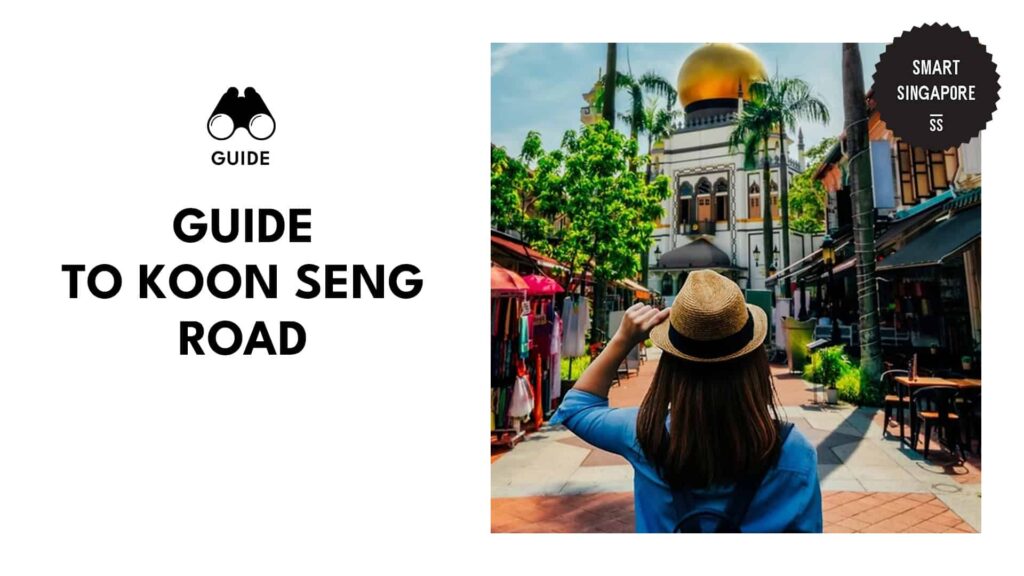Categories > Guides and Tips
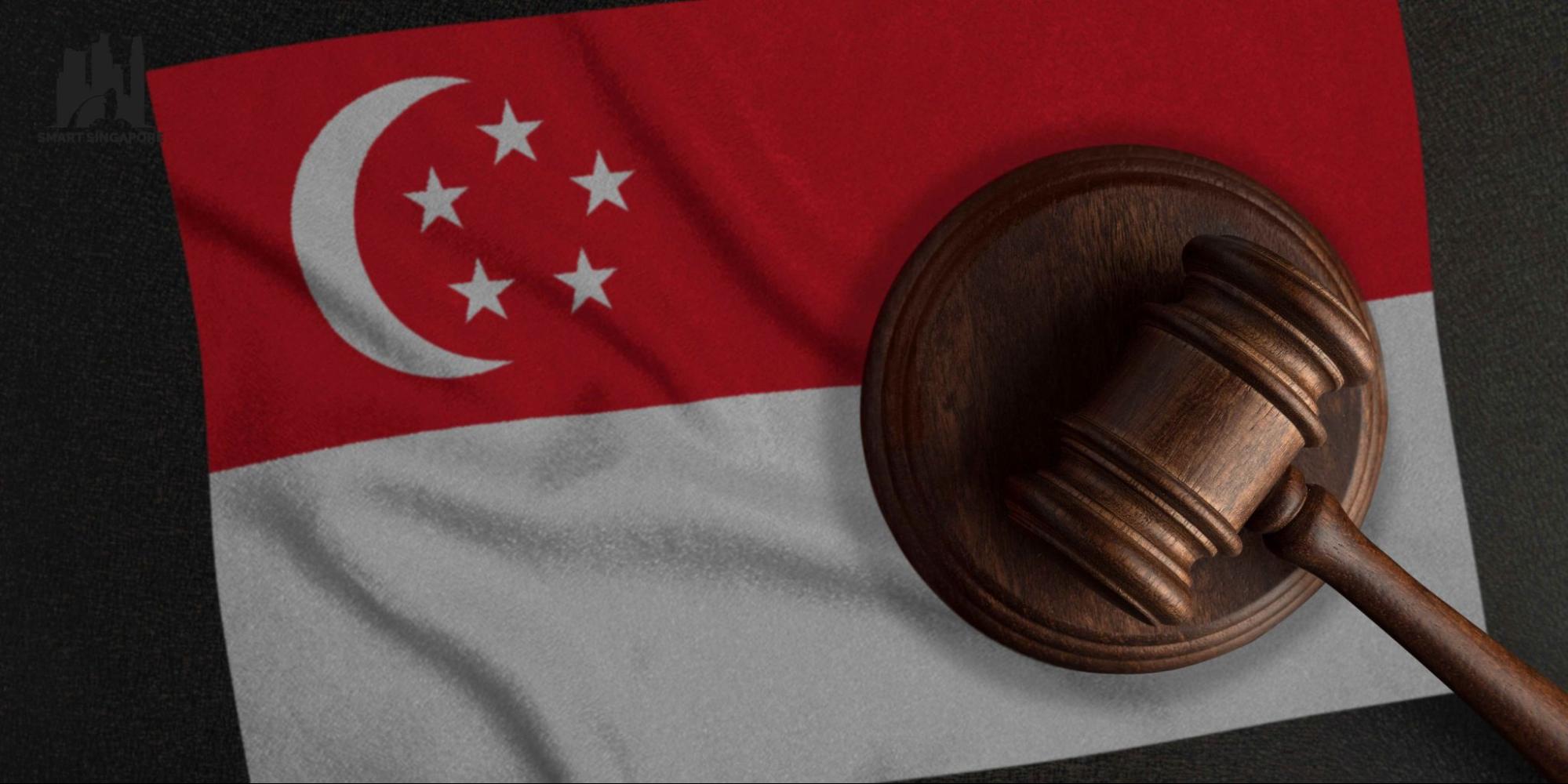
Fine Nation: A Tell-All Guide to Singapore’s Legal System
- A History of Singapore’s Legal System
- Colonial Era (1819 to 1934)
- The Japanese Occupation of Singapore (1942 to 1945)
- Baby Steps to Self-Governance (1945 to 1959)
- Singapore’s Separation from Malaysia (1963 to 1965)
- Independence and Modern-day Singapore (1965 to Present)
- An Overview of Singapore’s Legal System
- What are the roles of the prime minister?
- What are the roles of the president?
- What are the roles of the Cabinet?
- Types of Law
- Civil
- Criminal
- Family
- The Court System of Singapore
- Supreme Court
- Court of Appeal
- High Court
- Subordinate Courts
- The District Court
- The Magistrates’ Court
- Juvenile Court
- Small Claims Tribunal
- Coroners’ Court
- Community Disputes Resolution Tribunals
- Employment Claims Tribunal
- Syariah Court
- A Few of Singapore’s Most Unique Laws
- No Playing of Musical Instruments in Public
- No Chewing Gum Allowed
- No Trespassing on Someone Else’s Wi-Fi
- Don’t Leave a Toilet Unflushed
- No Drinking Past 10:30 P.M.
Singapore is infamously known as the fine country—and by fine, we mean hefty penalties. You can lose up to $1,000 if you litter in public places or for possessing chewing gum.
The penalty may sound outrageous for first-time offenders, but there’s a good reason behind it. Singapore is a fine city because of its strict laws and regulations keeping the country clean, progressive, and safe for both locals and expatriates.
If you recently moved to Singapore or simply want a refresher on the country’s laws, here’s a comprehensive guide to the island nation’s legal system!
A History of Singapore’s Legal System
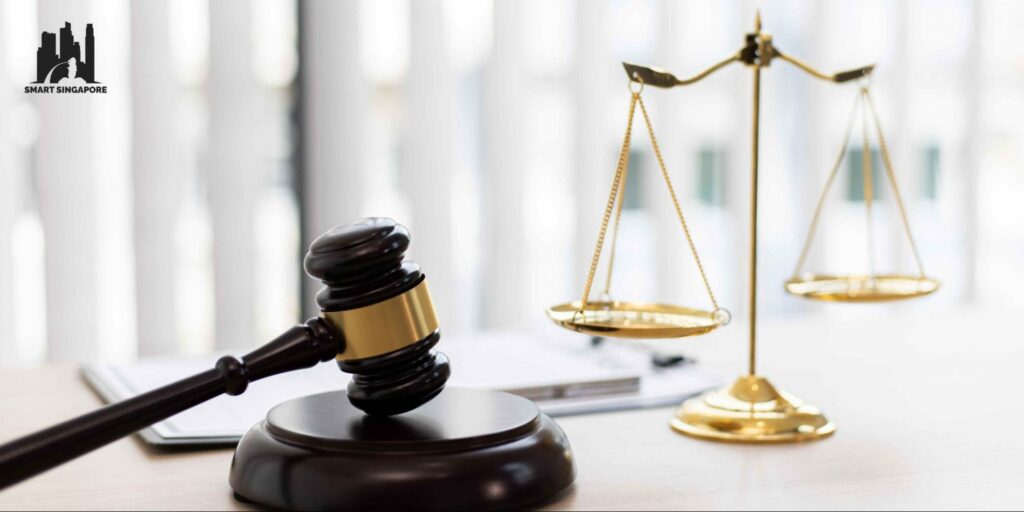
Singapore’s legal system is rich in history and colonial influences, much like the island nation.
From starting as a British trading point in the Colonial Era to its separation from Malaysia and independence from Great Britain, much of the nation’s legal framework has evolved and adapted to suit its needs as a leading global state and financial centre.
Colonial Era (1819 to 1934)
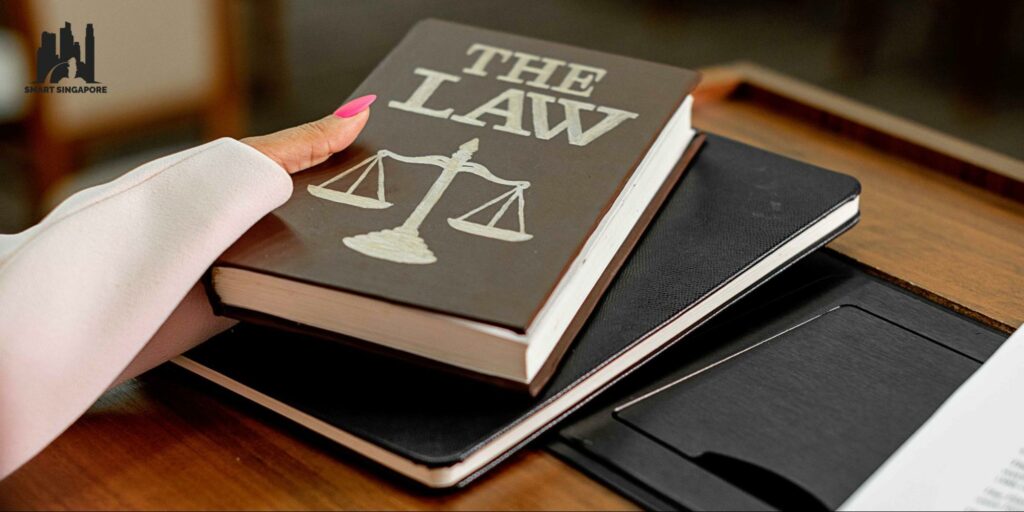
During the 19th century, Britain’s global influence was at its peak, especially in India.
Recognizing the importance of establishing trade routes and strategic agreements, which necessitated the presence of troops in Southeast Asia, the Governor-General of India, Lord Hastings, authorized Sir Stamford Raffles to develop a port in Singapore.
On January 29, 1819, Sir Raffles successfully established Singapore as an exchange station and port, marking the day as the founding of modern Singapore.
He made treaty agreements with Singapore’s de facto ruler Sultan Hussein on February 6, 1819, ceding ownership of the island in return for money.
This decision was a result of the understanding that a well-situated port in the region would facilitate trade and strengthen Britain’s regional interests.
The decision was part of the British Straits Settlements of 1826, which formally recognised Singapore, Penang, and Malacca as British colonies under the East India Company in India.
As a result of British rule in Singapore, the British Common Law was established on the island, importing the Penal Code to the colony.
The succeeding decades before World War II saw Singapore as a thriving political hub and trading post for British settlers in the East.
The island adopted English legal principles that are still relevant to this day such as the Internal Security Act and Societies Act.
The Japanese Occupation of Singapore (1942 to 1945)
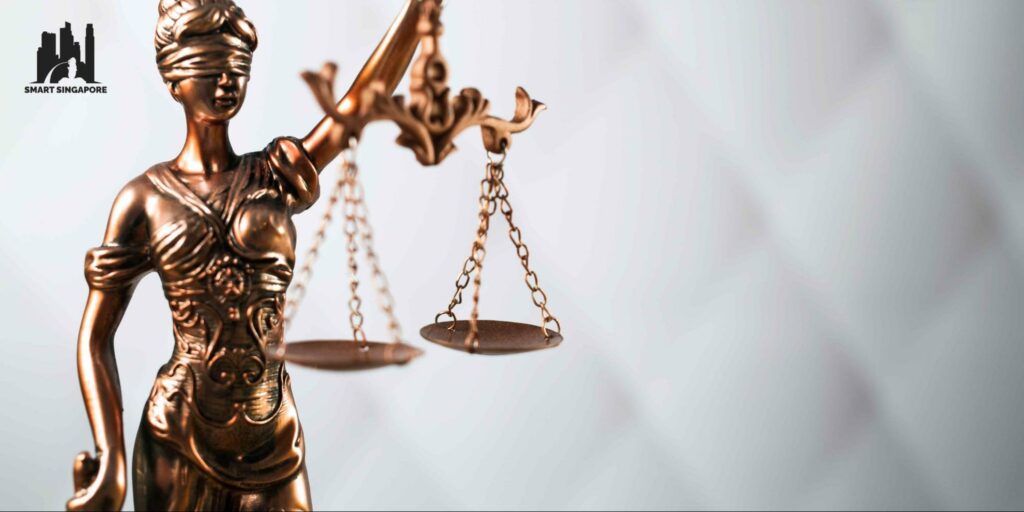
A major change to Singapore’s legal system happened when the Japanese took over the island in 1942. During this time, Singapore adopted Japanese laws, which were heavy on suppressing dissent and maintaining authority over the locals.
The legal framework of Singapore during this time brought harsh measures and punishments for people who disobeyed, causing upheavals and disruptions.
When World War II ended, the Japanese surrendered and Singapore once again adopted British legal principles.
Baby Steps to Self-Governance (1945 to 1959)
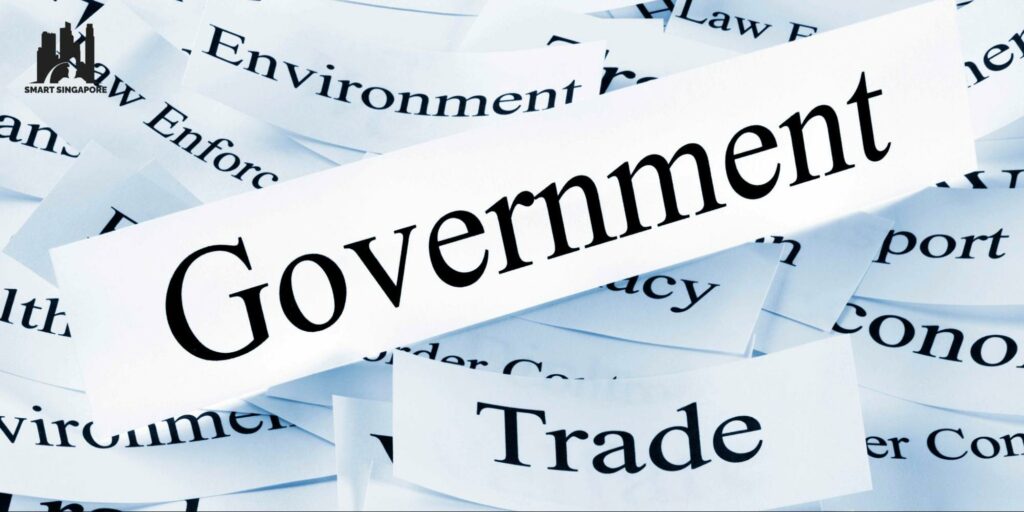
After the British Military Administration took over Singapore from the Japanese, the island’s legal framework reverted back to English common law but was modified to suit the local’s needs and wants during that time.
Thus, in 1946, the Straits Settlements disbanded and Singapore was recognised as a separate colony under British rule. A colonial constitution was formed to give constitutional powers to the governor and officials.
An executive and legislative council was formed to create peace, order, and good governance over the local population, and members were elected into office by popular vote during Singapore’s first election day on March 20, 1948.
By 1958, Singapore became a self-governing state after the British Parliament changed Singapore’s status from a colony to a state.
The island became a self-governing state and elected members into a newly-formed legislative assembly with Lee Kuan Yew as Singapore’s first prime minister in 1959.
Singapore’s Separation from Malaysia (1963 to 1965)
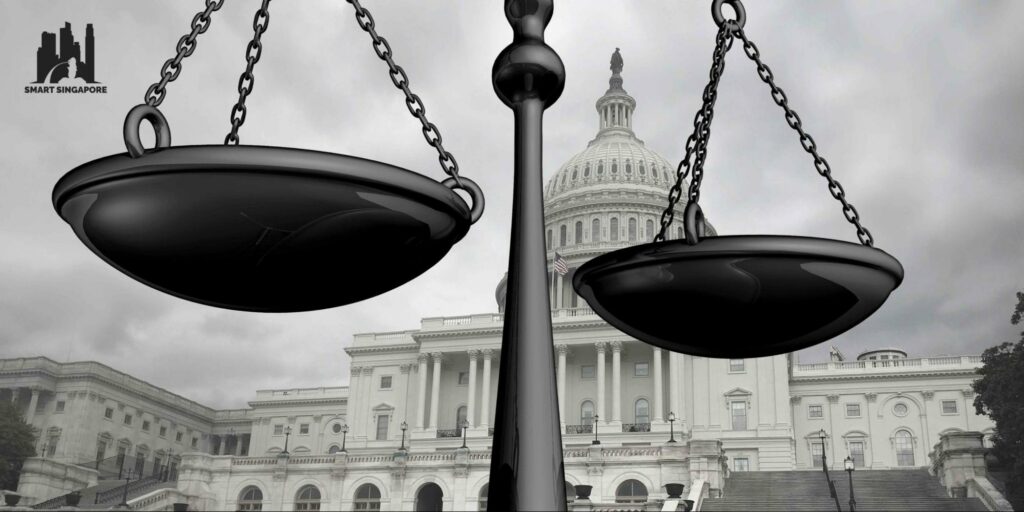
Singapore merged with the Federation of Malaysia in 1963 as a way to prevent Communist takeover from governing the island.
The British-based laws and legal systems of Singapore were pretty much intact during this period, save for a few modifications to fit the new Constitution formed with the Malaysia Act.
A legislature of Singapore was formed specifically to make laws for matters related to the Malaysian Federal Constitution.
Independence and Modern-day Singapore (1965 to Present)

The merger lasted only two years, and on August 9, 1965, Singapore disbanded from the Federation and declared independence. During this period, Singapore’s legal framework changed from being part of a federation to an independent republic.
Even as a sovereign state, Singapore’s parliament didn’t change its judicial system right away. Singapore’s High Court was still part of the Malaysian legal system until 1969 when the Supreme Court was established.
Changes to the legal system started decades after, and in 1993, Singapore’s legal system was finalised as independent through the Civil Law Act and the Application of the English Law Act.
While subject to modifications, no other English laws and principles are part of Singapore’s legal system if they’re not listed under the Act.
An Overview of Singapore’s Legal System

Singapore’s legal system is heavily influenced by Western governing principles, most notably the parliamentary system from the Westminster model of England.
The Constitution is the backbone of Singapore’s legal system and divides the government into three branches: the executive, legislative, and judiciary.
These three branches of government have respective functions, and all play a crucial role in executing good governance over the people of Singapore.
Each branch checks the other out when it comes to maintaining transparency, accountability, and efficiency across all of Singapore’s daily government affairs.
| Branch | Members | Roles and Responsibilities |
| Executive | ●Prime minister ●The cabinet ●Attorney-general ●Elected president | ●Overseeing government agendas ●Executing policies and issuing laws created by the legislative branch |
| Legislative | ●The president ●Parliament | ●Making and passing laws ●Cross-checking the agendas made and enacted by the executive branch |
| Judiciary | ●Supreme Court ●State courts | ●Enforcing and interpreting laws through the Supreme Court and state courts ●Ensuring that separation of powers is enacted by all branches of the government ●Safeguarding the Constitution and ensuring that laws abide by its principles |
The Constitution of the Republic of Singapore, like all governing principles, is based on good governance, enabling ruling parties to protect the fundamental rights of Singapore citizens.
It comprises guidelines ensuring that all citizens are treated equally and fairly.
Under the parliamentary system of the Westminster model, Singapore follows the separation of the executive and legislative branches and their powers.
The most notable trait of this legal system is the roles of the prime minister, the cabinet, and the president.
What are the roles of the prime minister?
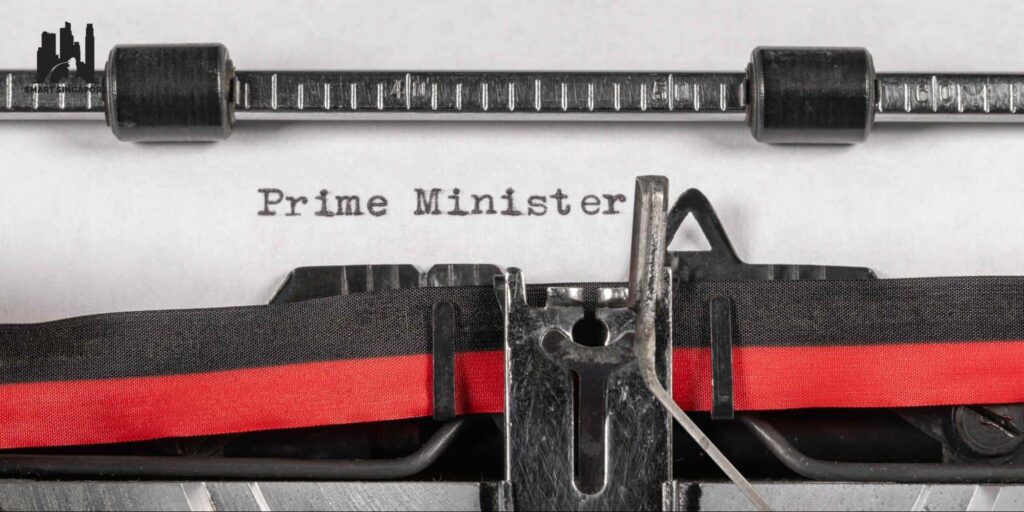
The prime minister is the head of Singapore’s unitary parliamentary government, and the position entails policy-making, formation of government members, and commanding the majority of members in parliament.
Singapore’s prime minister is appointed by the president, following a series of general elections between political parties.
The prime minister oversees all the daily affairs of the government and spearheads its policies, including passing legislation and appointing Cabinet members.
They are also in charge of overseeing the country’s safety, defence, and security measures as well as leading negotiations and engaging in international affairs.
One of the most important roles of the prime minister is to engage with the public as a spokesperson for the government. The prime minister communicates with the citizens about initiatives and national matters through press conferences and speeches.
Other crucial roles of the prime minister are overseeing economic management strategies and policies, spearheading trade agreements, and leading crisis management processes when a natural disaster strikes Singapore.
Although the prime minister is appointed by the president, the role cannot be dissolved unless the Parliament loses confidence. If parliamentary dynamics prove to be unfavourable, the prime minister may be invited to resign from the role.
What are the roles of the president?
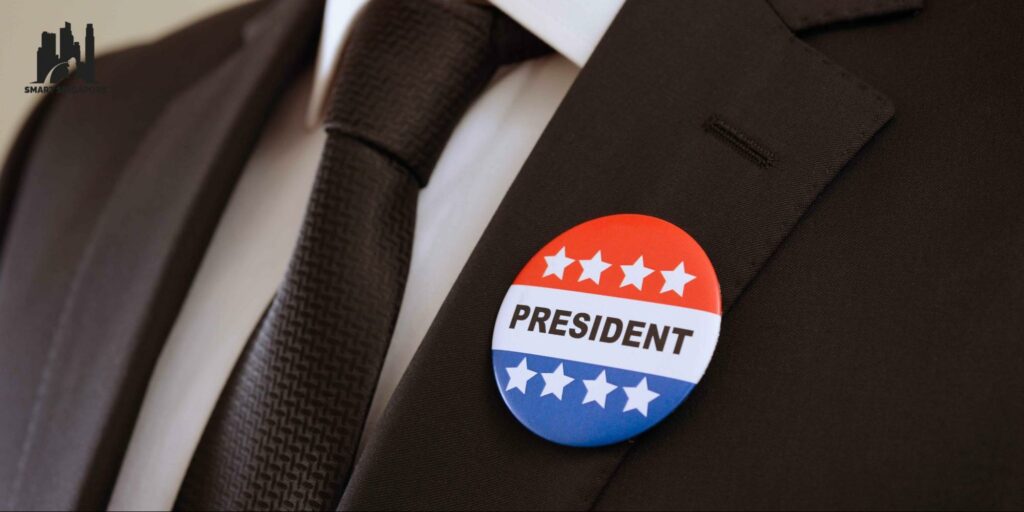
The president of Singapore holds power in the country’s government but lesser than that of the prime minister.
The president’s role is largely symbolic, but their responsibilities are important, especially when it comes to representing the nation in international affairs.
The president is mainly in charge of overseeing Singapore’s financial reserves and expenditures. They approve motions on government spending and are responsible for keeping reserves from being spent excessively.
Note that the president’s job is to ensure that financial reserves are handled responsibly, but the overall approval of budgets is dealt with by the Cabinet.
Apart from safekeeping funds, the president is also in charge of appointing key members in public offices, such as positions at the judiciary level, civil service, and the prime minister.
In case the parliament doesn’t perform well, the president has the power to dissolve it and call on a general election for new members to be appointed.
Although highly symbolic, the president is the face of the nation and is responsible for keeping Singapore’s reputation in good standing locally and internationally.
The president can also participate in community events, exercise pardons and reprieves in criminal cases, and undertake some foreign and diplomatic functions, on the advice of the Cabinet and the prime minister.
What are the roles of the Cabinet?
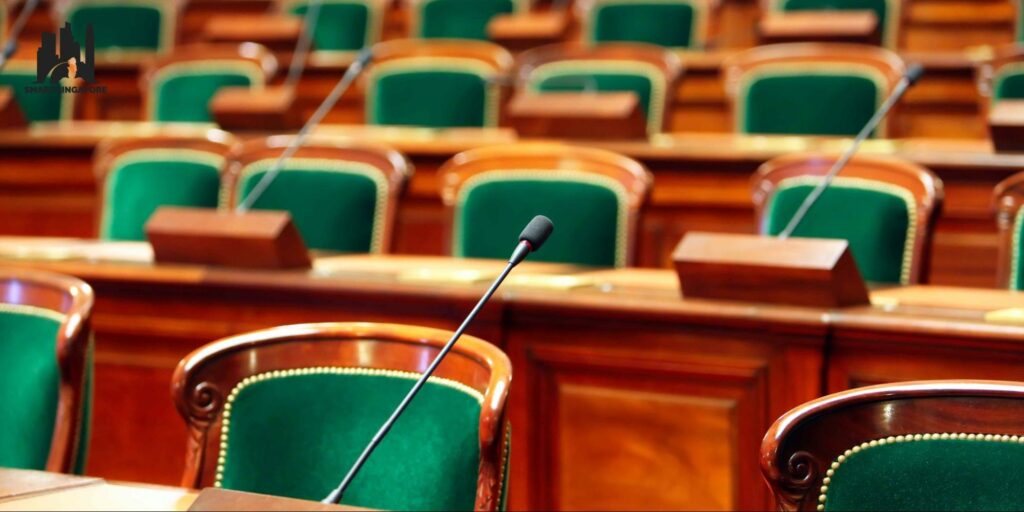
Singapore’s cabinet is composed of various ministers who lead government departments and ministries.
The Cabinet is mainly responsible for making and revising policies, implementing agendas, and approving the government’s budget.
One of the most important roles of the Cabinet is to implement policies they form across a wide range of sectors like education, social welfare, and foreign affairs.
The Cabinet ministers coordinate with government agencies in facilitating activities to reach policy objectives.
These activities may involve formulating strategies for crisis management, proposing amendments to current laws, and contributing to economic plans for Singapore.
In short, the Cabinet is the main decision-making agency of Singapore’s government and is responsible for ensuring that the legal system continues to abide by the Constitution and that ruling bodies are functioning efficiently and coherently.
Types of Law
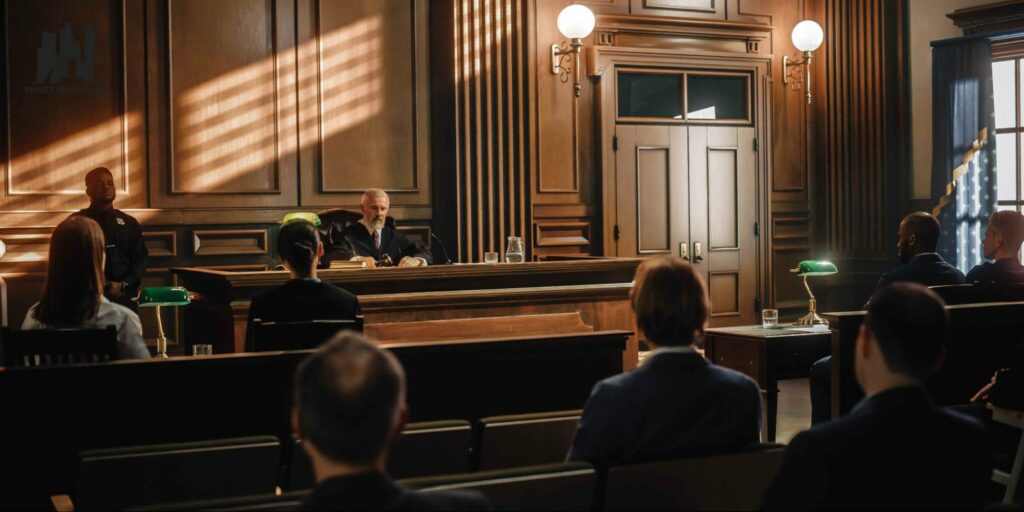
Singapore’s courts are divided into three main types of law: civil, criminal, and family law. These three divisions are essential in the collective legal framework of Singapore.
Knowing these three types of law practised in Singapore allows citizens to file cases and acquire proper legal aid according to their circumstances.
Civil
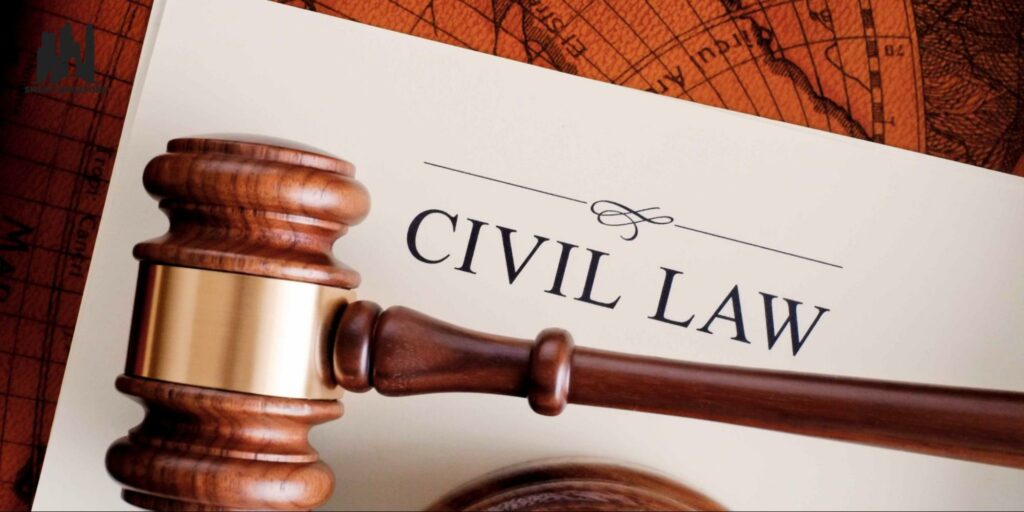
Civil law is the body of law that concerns disputes between organisations or individuals.
Cases are noncriminal and involve providing legal aid to parties who suffered injury or harm, mainly private citizens looking to be compensated for the damages caused by other individuals and entities.
Cases filed under civil law are
- Employment rights
- Intellectual property disputes
- Debt
- Bankruptcy
- Personal injury
- Commercial disputes
- Corporate matters
Civil law also deals with reaching settlements between two parties regarding a case filed by the plaintiff or accuser. The defendant may acquire their own attorney to represent them over the case.
In some cases, civil law involves litigation, which could stretch the case’s duration for months to even years.
It’s important to reach out to a law firm that specialises in civil law and litigation so that an attorney with sufficient experience in the field can preside over your case.
Criminal
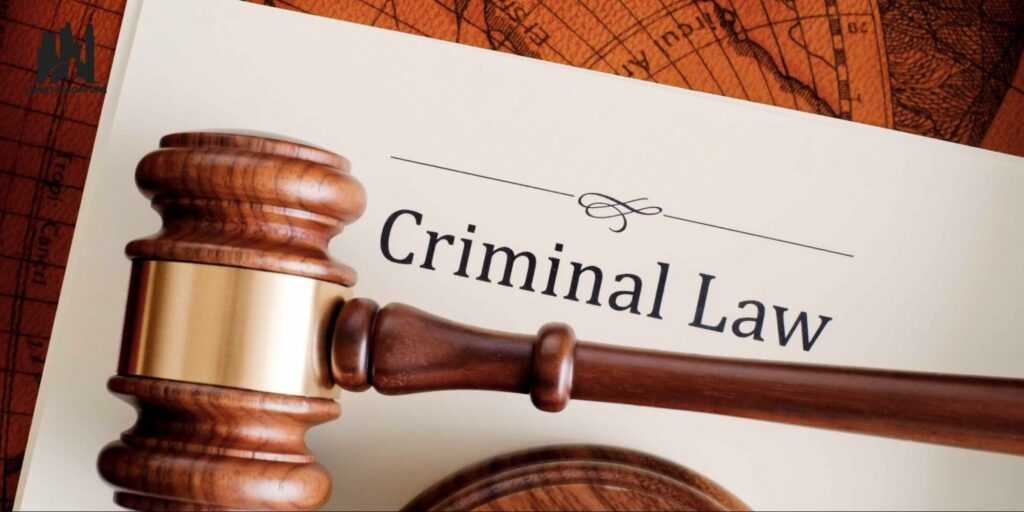
Criminal law involves dealing with minor and major offences against society or the state by an individual or entity.
Criminal law deals with more serious matters than civil or family law because the accused is suspected of committing punishable acts that are against the law.
Criminal offences may include theft, fraud, sexual assault, human trafficking, and drug trafficking.
In criminal law, the state or prosecution is the plaintiff and legal actions are governed by the Penal Code. Persons charged with criminal offences are often given lengthy and harsh sentences like imprisonment when proven guilty by the state.
The accused may also be sentenced to fines, caning, probation, or even capital punishment, depending on the gravity of their criminal offence.
Sentences are based on the four key pillars of criminal law: retribution, deterrence, prevention, and rehabilitation. These pillars are carried out to the accused once they are proven guilty in a case.
Family
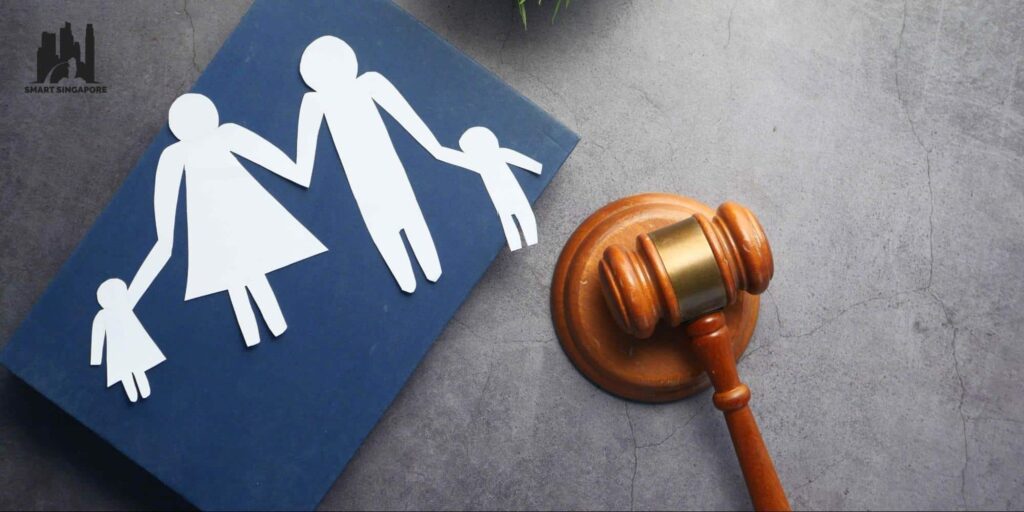
Family law deals with matters related to personal relationships and domestic issues like marriage, child custody, and divorce.
Family law provides resolutions to disputes and focuses on keeping family units intact. Generally, family law in Singapore is presided over by the Family Justice Court.
When it comes to marriage and divorce affairs, family law regulates the legal procedures and outlines the valid grounds for the separation of spouses. The primary legislation that covers divorce and marriage is the Women’s Charter.
The Women’s Charter is also involved in arranging child custody settlements, ensuring that the welfare of the children is prioritised in divorce cases.
Aside from divorce and marriage, family law covers the following:
- International divorce
- Adoptions
- Probates
- Maintenance and alimony
- Annulments
- Child and domestic abuse
- Division of matrimonial assets
In Singapore, Muslim individuals are represented by the Syariah Court, which presides over family law cases in accordance with Syariah law.
In both Syariah and Family Justice Courts, however, there is an emphasis on reaching an amicable outcome between parties, so before a divorce is formalised, couples may undergo multiple counselling and mediating services.
The Court System of Singapore
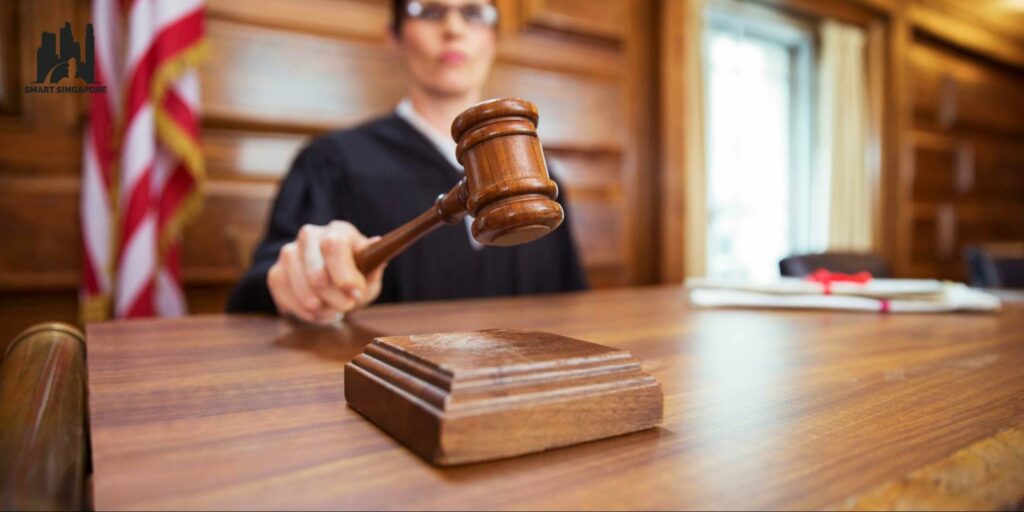
The court system of Singapore provides structure to the nation’s legal framework and is organised into two main tiers, which have respective jurisdictions.
These tiers are the Supreme Court and the subordinate courts, led by the chief justice and senior district judge, respectively.
Supreme Court
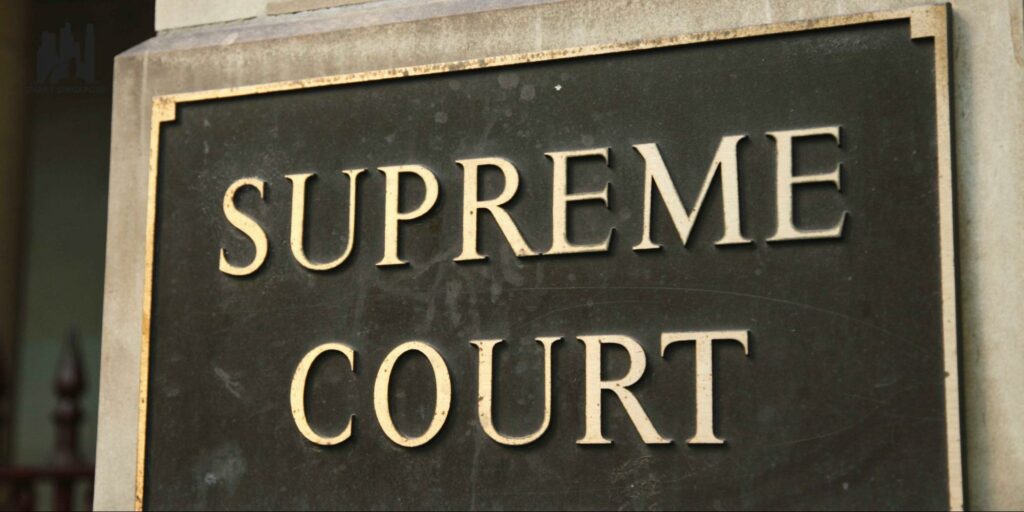
Spearheaded by the chief justice, the Supreme Court plays a crucial role in shaping the law and ensuring that citizens receive fair administration of justice.
The chief justice is responsible for overseeing judicial functions within the Court, and decisions made in cases become legal precedents for future cases.
The Supreme Court was established in 1970 and acts as the highest judicial body in Singapore. It has two main divisions, namely, the Court of Appeal and the High Court. The Supreme Court deals with both civil and criminal matters through these divisions.
Court of Appeal
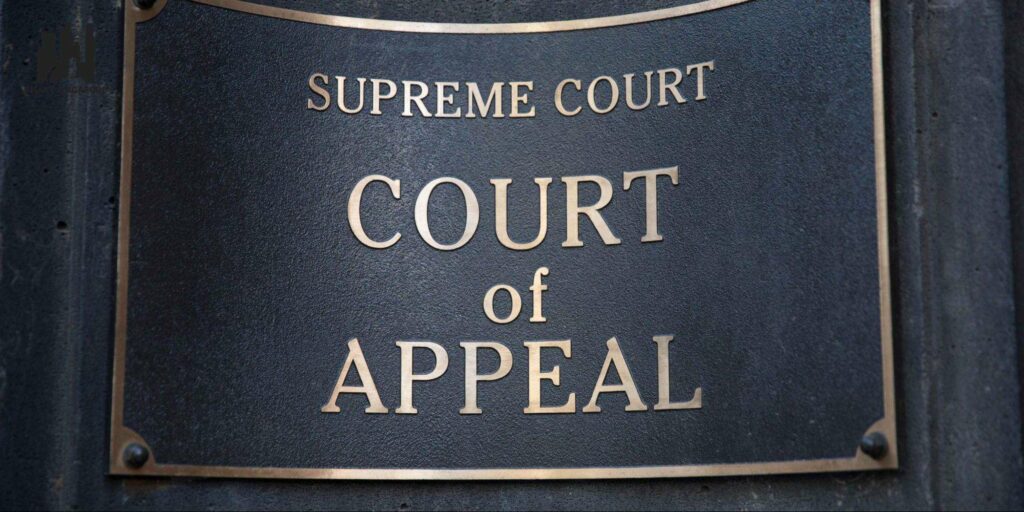
The Court of Appeal is in charge of deciding on appeals from criminal and civil cases, setting legal precedents, and maintaining accuracy and fairness when legal principles are applied.
It’s considered to be the most important court division in Singapore’s legal system.
It’s the higher division of the Supreme Court, and proceedings are heard by three judges, including the chief justice. If a case is more serious or holds major significance, at least five judges may be called to preside over it.
High Court
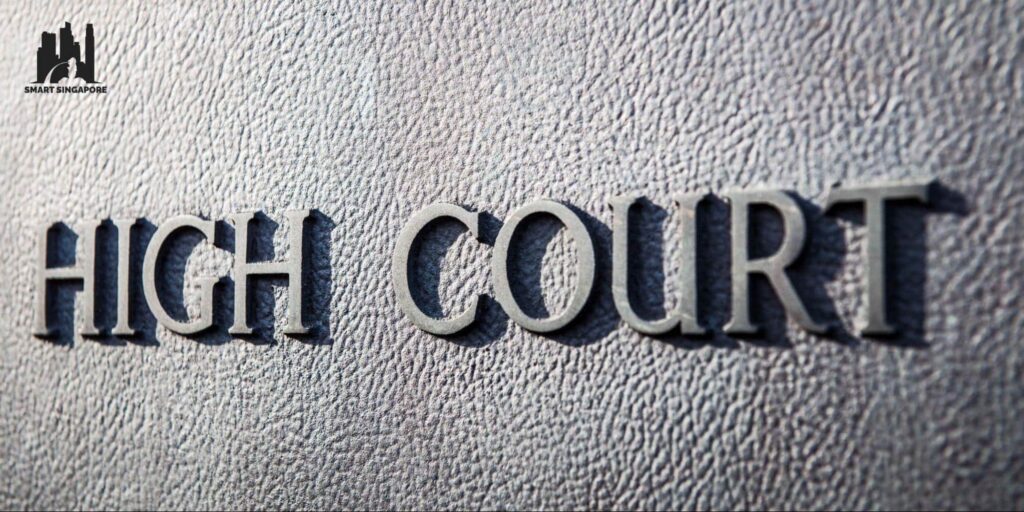
The High Court division deals with serious and major criminal and civil cases, ensuring that involved parties receive just trials.
The cases they handle usually carry the death penalty, substantial monetary claims, and large estate disputes whose value exceeds $250,000.
High Court proceedings are generally heard by a single judge and have jurisdiction over district courts and magistrates’ courts if cases are beyond their scope.
Subordinate Courts
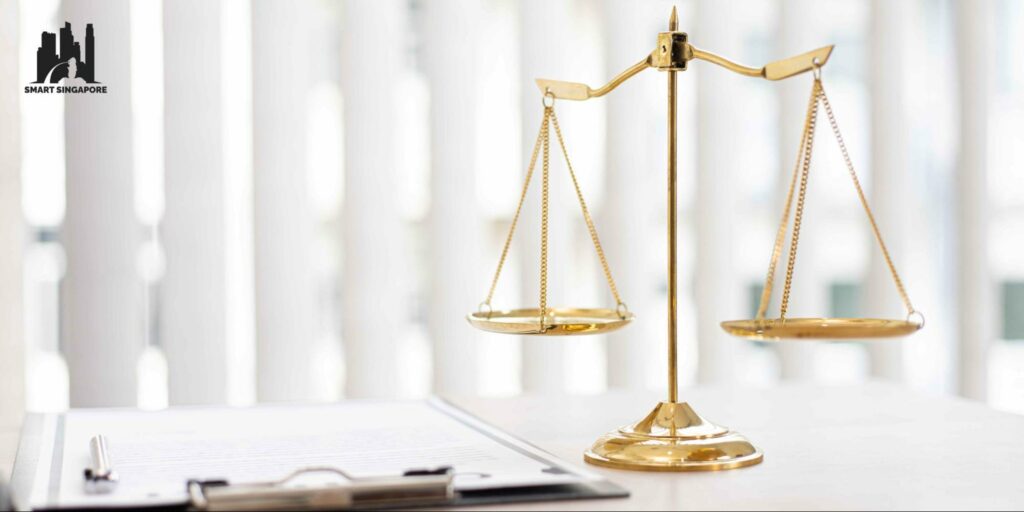
The subordinate courts comprise specialised courts that deal with less serious legal matters than that of the High Court.
These specialised courts provide citizens with accessible legal assistance and amicable resolutions across various categories, such as
The District Court
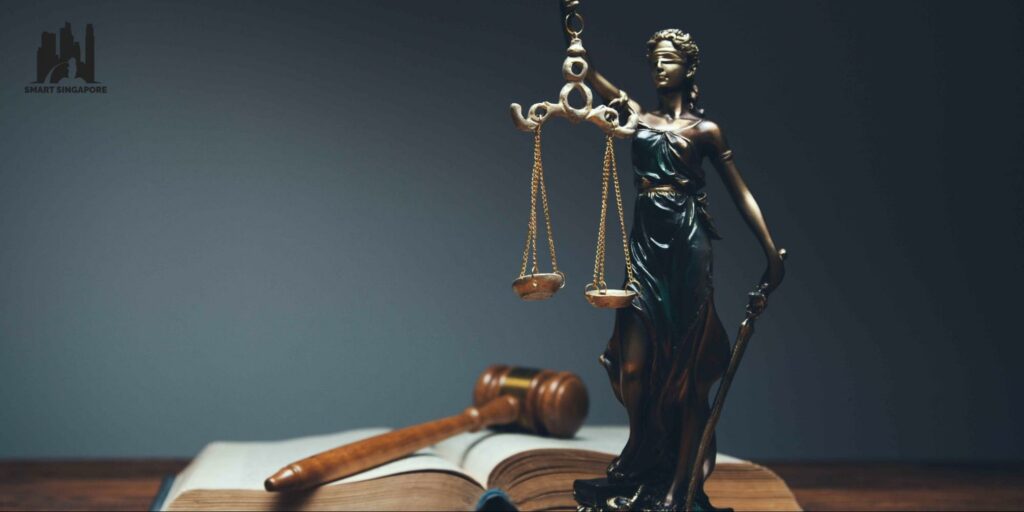
The district court handles civil cases and tries criminal cases over a broader jurisdiction, covering cases beyond the scope of the magistrates’ court.
In civil cases, the district court mainly handles cases with claims ranging between $60,000 and $250,000. Claims above those values will be endorsed to the High Court.
On the other hand, the district court tries criminal cases involving punishments of up to 10 years of prison time. It also deals with offences that are punishable by fines and penalties.
The Magistrates’ Court
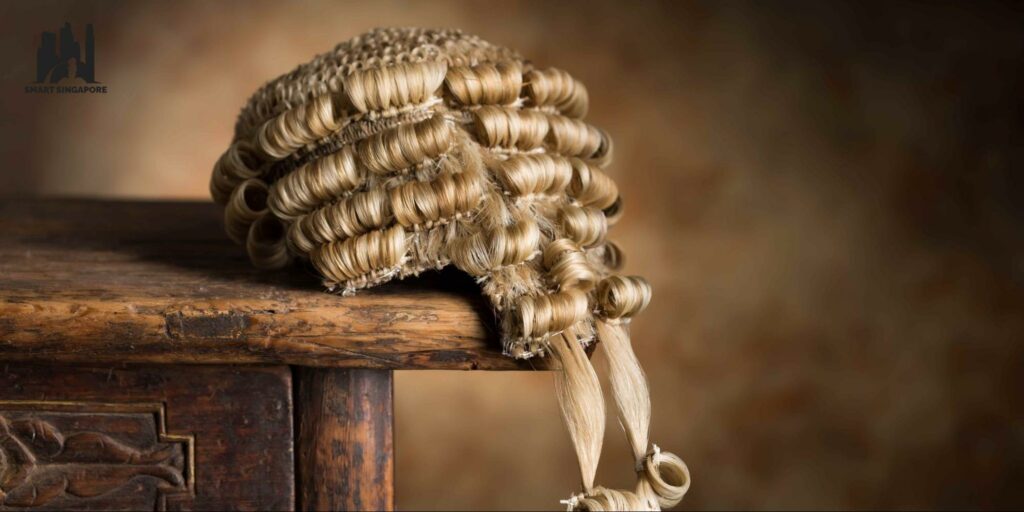
The magistrates’ court handles cases that are less severe than those under the district court. Such offences may include vandalism, traffic violations, and minor theft.
It deals with civil cases with claims below $60,000 and criminal cases with a maximum of three years of prison time. It also has the power to sentence a maximum of two years of prison time, six strokes of the cane, and fines of up to $2,000.
Juvenile Court
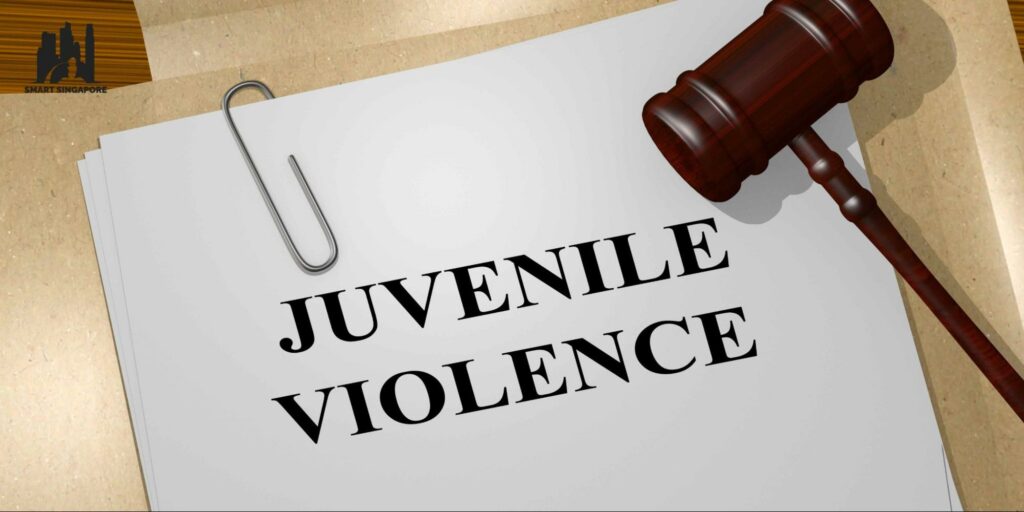
The juvenile court presides over cases involving minors below the age of 16 committing offences. Juvenile offenders are sentenced with procedures unique to their circumstances, with a primary focus on rehabilitation instead of punishment.
Offenses that the juvenile court handles range from minor theft to more serious acts which may require hefty intervention.
Since rehabilitation is the goal, the juvenile court aims to address family dynamic issues, poor education, and social engagement issues that may have contributed to the juvenile offenders’ actions.
Small Claims Tribunal
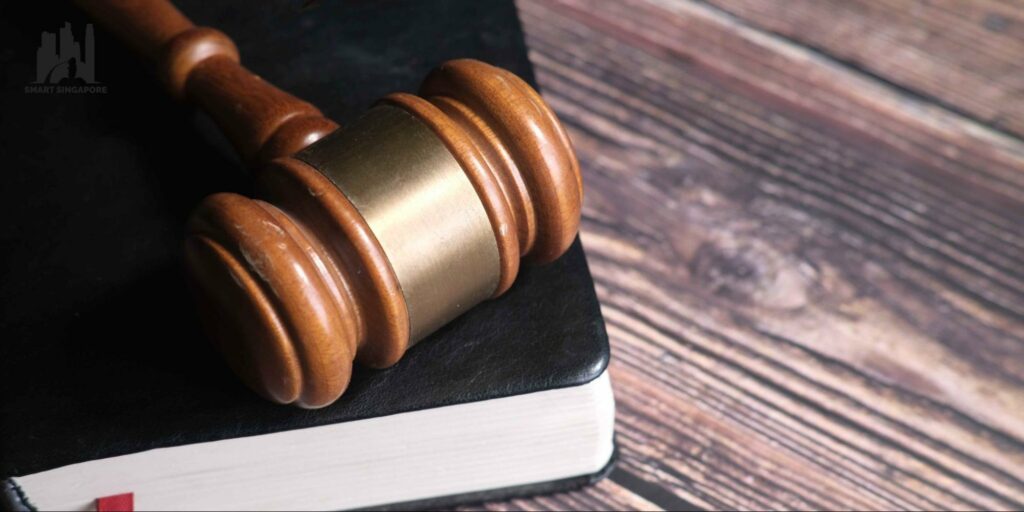
The small claims tribunal provides citizens with accessible avenues for dealing with cases inexpensively. Most cases are resolved quickly and involve conflicts surrounding tenancy disputes and claims of up to $30,000.
The small claims tribunal accepts claims that
- Are filed within two years since the conflict started
- Have damages incurred by natural disasters
- Involve disputes against a supplier due to unfair business practices
The main goal of the small claims tribunal is to provide quick resolutions to conflicts and avoid formal hearings through mediation. If a case decision proves to be more serious or significant than expected, appeals may be made to the High Court.
Here, parties may represent themselves to lower legal fees, but hiring an experienced attorney may benefit the case.
Coroners’ Court
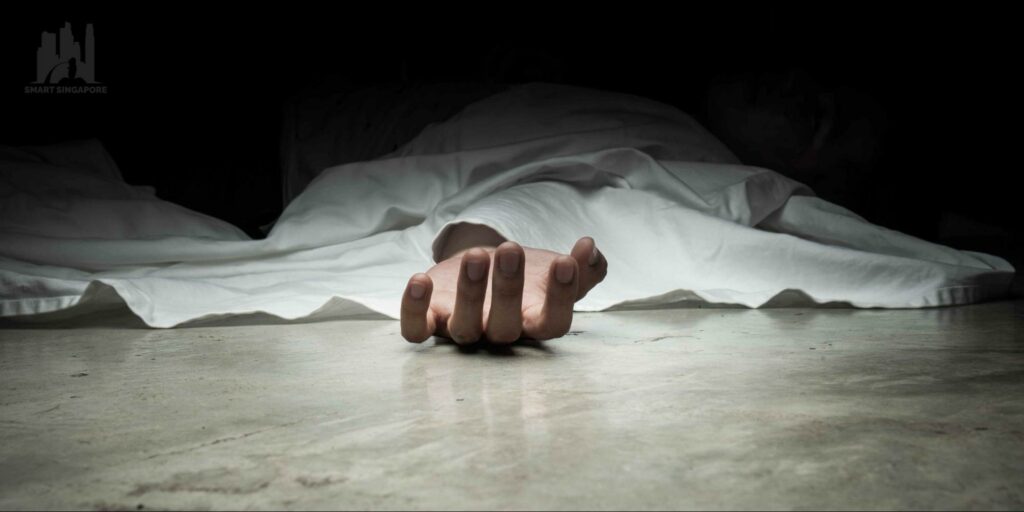
Coroners’ court specifically handles cases dealing with unnatural or sudden deaths. It involves investigating the primary cause of death of an individual, especially if there is suspicion of foul play, suicide, or homicide.
The coroners’ court does not hear in criminal courts, but legal proceedings may be conducted to work out possible causes of death. Witnesses may be called to testify if needed.
Due to the court’s primary goal of establishing the cause of sudden or suspicious death, it doesn’t determine guilt or fault but instead aims at identifying potential hazards and maintaining transparency to prevent future incidents.
Community Disputes Resolution Tribunals
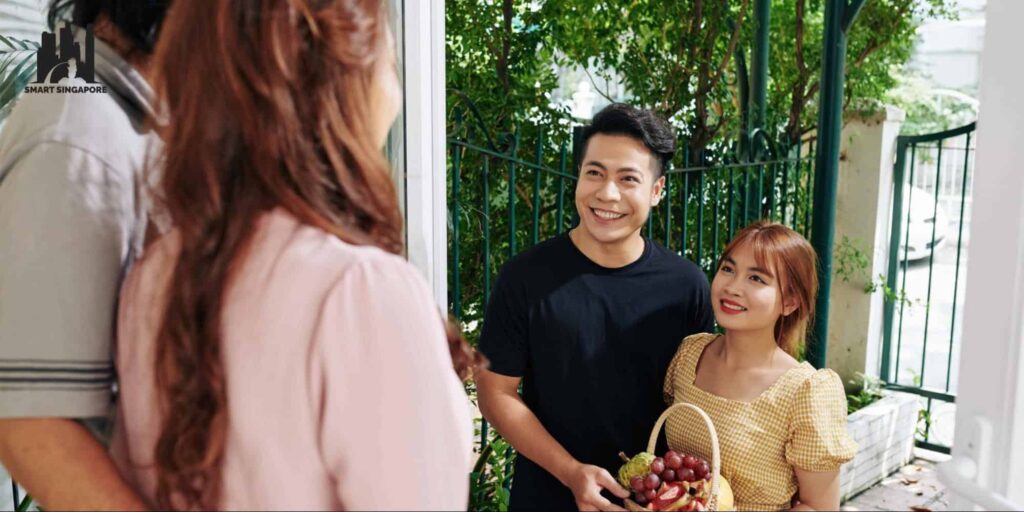
As the name suggests, the community disputes resolution tribunals aim to resolve disputes at a community level. Neighbourly conflicts are resolved through mediation or adjudication based on pieces of evidence presented by the plaintiffs.
A few examples of conflicts that may be valid grounds for case filing are
- Littering on a neighbour’s property or a community space
- Damaging property that is not your own
- Intrusion or invasion of privacy
- Excessive noise or disruption of peace within the community
Although issues may be valid grounds, they are still subject to investigation and proper communication between involved parties. Conflicts need not escalate to legal proceedings if they can be addressed through mediation.
The goal of the CDRT is to promote better understanding and camaraderie in communities, ensuring that parties living in the same estate or districts get amicable and practical outcomes over issues.
Because the CDRT aims to keep conflicts from escalating, plaintiffs aren’t required to hire legal representation unless absolutely necessary.
It acts as an alternative to court proceedings and aims to make solving neighbourly disputes more harmonious and cost-effective.
Employment Claims Tribunal
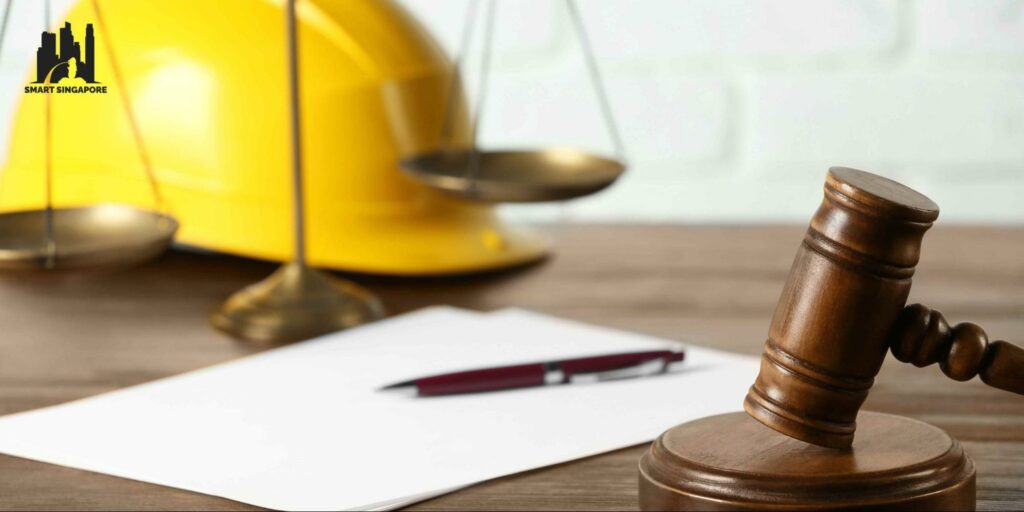
The employment claims tribunal deals with issues related to employment such as resolving salary claims, statutory benefits issues, and wrongful dismissals.
Established under the Employment Claims Act, the ECT focuses on providing individuals with a more streamlined legal process when dealing with disputes and conflicts between employers and employees.
A more union-based entity under the Ministry of Manpower is the labour court, which specifically deals with cases involving collective agreements, strikes, lockouts, and industrial conflicts.
Syariah Court
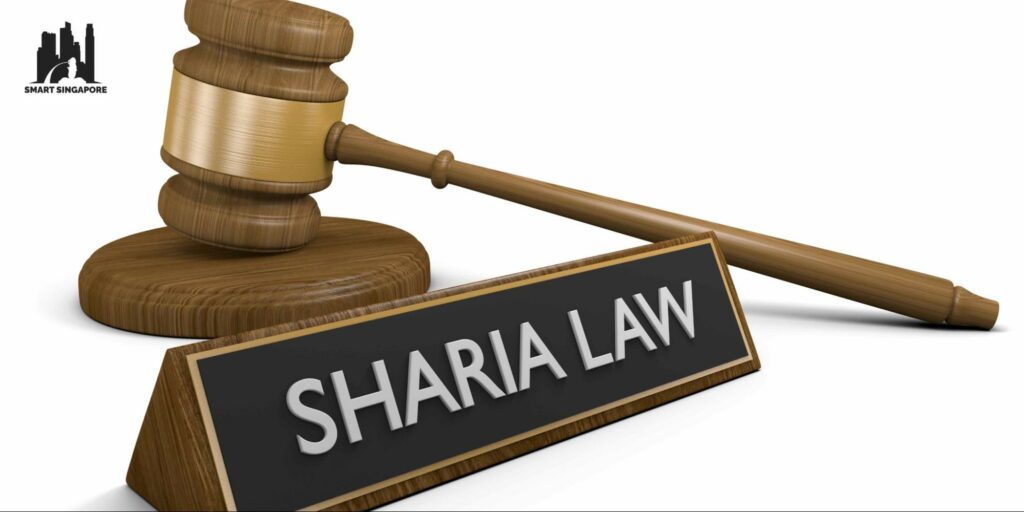
The Syariah Court deals with cases related to the Syariah law and is dedicated to providing just and accessible legal aid for Singapore’s Muslim community.
The Syariah Court has jurisdiction over a wide range of sectors including marriage, inheritance, divorce, and other religious matters within the Muslim minority.
For example, when a Muslim couple decides to file for a divorce, they must do so at the Syariah Court because the subject matter must be presided over with Islamic law requirements.
Despite operating like a separate legal system, the Syariah Court adheres to Singapore’s constitution and complies with the general laws of the nation.
Islamic principles and jurisprudence are overseen by the judges of the Syariah Court appointed by the president.
A Few of Singapore’s Most Unique Laws
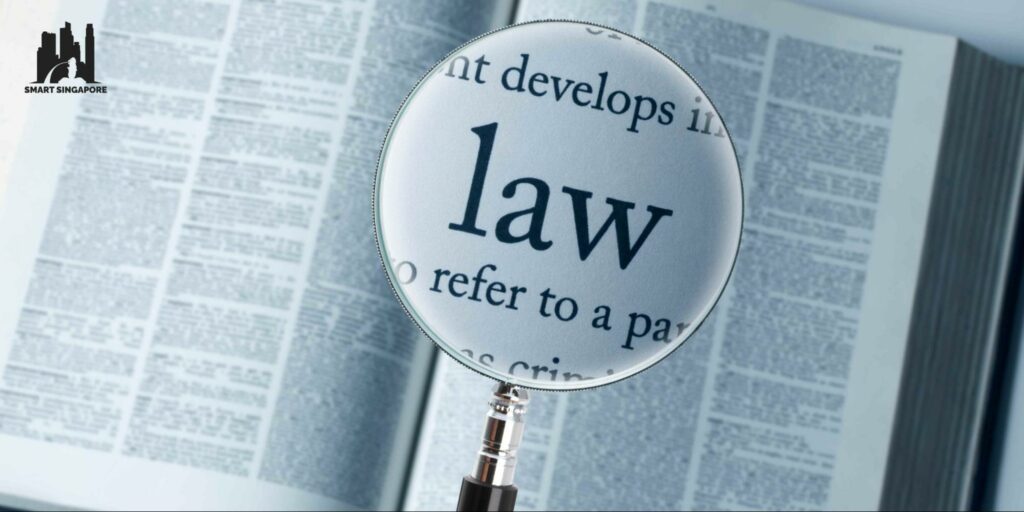
Singapore is known worldwide for many things and one of them is its unique laws. You may have heard about them before, but here’s a refresher on some laws to keep in mind on your next visit to Singapore:
No Playing of Musical Instruments in Public
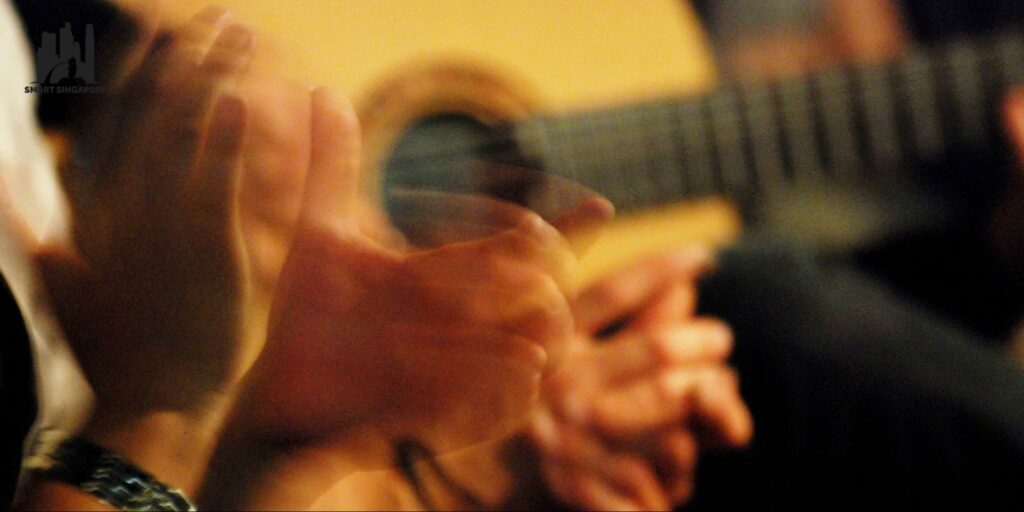
According to the Miscellaneous Offences Act, people who play musical instruments in public spaces may be fined up to $1,000 or punished with imprisonment. The law was put in place to prevent annoyance or nuisance to surrounding communities or residents.
Noise complaints in other countries may be easier to bypass, but definitely not in Singapore!
Keep your karaoke machine volume to a minimum or reconsider serenading in public unless you want the police entering your home and raining down on your parade.
No Chewing Gum Allowed

Of course, we can’t forget the infamous law that put Singapore’s legal system in the international spotlight. Tourists from all over the world have heard about this unique law and know better than to break it when they visit Singapore.
According to the Regulation of Imports and Exports and the Sale of Food Regulations, the importing of chewing gum is prohibited in Singapore. Offenders may be charged up to $100,000 in fines and two years of jail time.
Even selling or littering chewing gum in public can cost you $2,000 in fines, so we highly suggest keeping your mints and hard candies instead during your visit.
No Trespassing on Someone Else’s Wi-Fi

This may not be as known as the chewing gum law, but it’s illegal to access someone else’s Wi-Fi without their consent in Singapore.
The Computer Misuse Act of 1993 states that unauthorised usage is a chargeable offence of up to $10,000 in fines and three years of prison time.
So, people travelling to Singapore for business might want to stick to free Wi-Fi connections in local coffee shops for a hassle-free (and fine-free) stay.
Don’t Leave a Toilet Unflushed
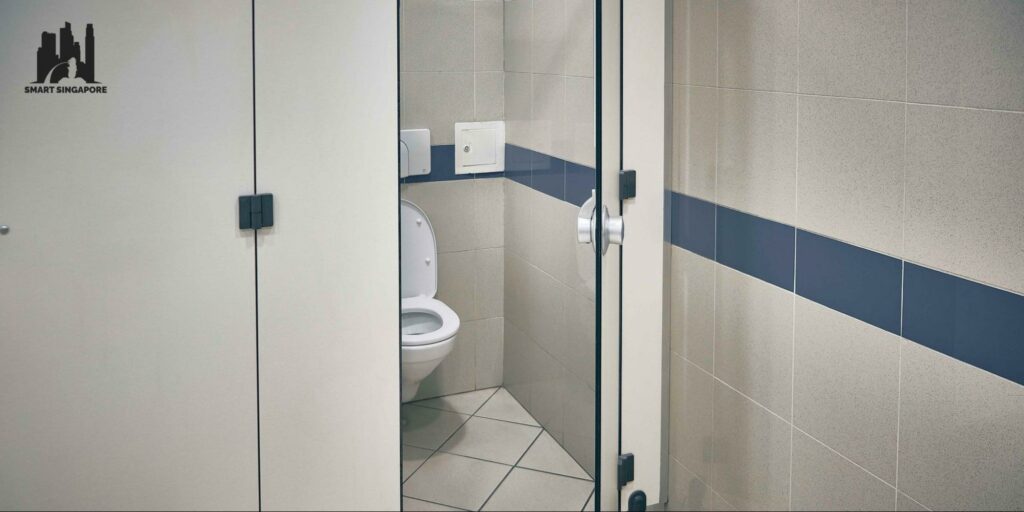
Consider checking the toilet bowl twice before leaving a public cubicle. According to the Environmental Public Health Regulations, it’s mandatory for people to flush public toilets after each use and offenders may be fined up to $1,000.
In case you’re wondering how on earth officials will find out if you do or don’t flush toilets, they conduct regular and random checks around the city. So, not only shouldn’t you throw trash in the toilet bowl, but don’t ever forget to flush!
No Drinking Past 10:30 P.M.

Hate to break it to all party people, but drinking and selling alcohol past 10:30 pm in public places may result in fines of up to $1,000.
The Liquor Control Act of 2015 mandates that people cannot drink or sell alcohol in public places within designated Liquor Control Zones from 10:30 pm to 7:00 am the next day.
Only licensed establishments within Liquor Control Zones are allowed to sell alcohol within the restricted window. Special permits may be granted for private events, and exceptions are made for hotels.
